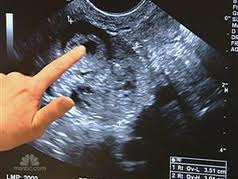OVARIAN CANCER IS TYPICALLY VIEWED AS A "SILENT DISEASE" Ovarian Cancer Awareness
.....Cancer begins at a cellular level. Normally, cells grow and divide to form new cells. These new cells take the place of old cells as they die. Cancer cells continue to grow and divide. These abnormal cells continue to create new cells forming a tumor. .....The ovaries are a pair of organs in the female reproductive system. They are .....Anything that increases your risk of getting a disease is called a risk factor. Women who have one first-degree relative (mother, daughter, or sister) with ovarian cancer are at an increased risk of developing ovarian cancer. This risk is higher in women who have one first-degree relative and one second-degree relative (grandmother or aunt) with ovarian cancer. This risk is even higher in women who have two or more first-degree relatives with ovarian cancer. .....Early signs and symptoms are vague, are often subtle and difficult to diagnose. Recent research study pinpointed a cluster of symptoms that occur more frequently in women with ovarian tumors are: Bloating,Pelvic or Abdominal pain, Difficulty eating or feeling full quickly, and Urinary urgency or frequency. Other symptoms may include: Nausea, indigestion, gas, constipation or diarrhea, Extreme fatigue, Shortness of breath, and Backaches.Talk to your doctor if you recognize the symptoms. .....Women with certain risk factors may have a greater chance of developing ovarian cancer. These risk factors include: Family history of breast or ovarian cancer, Personal history of cancer, Women over the age of 55, Women who were never pregnant, and Women on menopausal hormone replacement therapy. .....Awareness, early detection and prompt treatment are the keys to surviving ovarian cancer, so please share this article with the women in your life. For more information about cancer please visit: • The National Cancer Institute. • The American Cancer Society at 1-800- ACS-2345 |
||
|
||
Bienvenido a la primer revista dedicada al cuidado de la salud
 info
info
The first, the best & the only English & Spanish Magazine in San Diego, California
| CANCER |
| Ovarian Cancer Awareness >> |
| Cancer: What it Means to You |
| Talking with Your Doctor About Cancer-related Pain |
| LUNG CANCER |
| Lung Cancer Awareness |
| BREAST CANCER |
| Early Detection reduce breast cancer deaths |
| SKIN CANCER |
Why You Should Know About Melanoma ....Melanoma is the most serious of the common type of skin cancer. The good news is that most melanomas can be found early and treated successfully. This brochure describes risk factors for this type of skin cancer, and important tips for finding it early.(PDF) |
| .COLON CANCER |
Colorectal cancer screening saves lives. . >> CDC |
| March is National Colorectal Cancer Awareness Month! CMS |
| Everyday Steps to Reduce Colon Cancer Risk |
| Colorectal Cancer Testing on the Rise |
| Prevention the Focus of New Colon Cancer Screening Guidelines |
| CAREGIVING |
| How To Be an Effective Caregiver |
 located in the pelvis, one on each side of the uterus (the hollow, pear-shaped organ where a fetus grows). Each ovary is about the size and shape of an almond. The ovaries produce eggs and female hormones (chemicals that control the way certain cells or organs function).
located in the pelvis, one on each side of the uterus (the hollow, pear-shaped organ where a fetus grows). Each ovary is about the size and shape of an almond. The ovaries produce eggs and female hormones (chemicals that control the way certain cells or organs function).